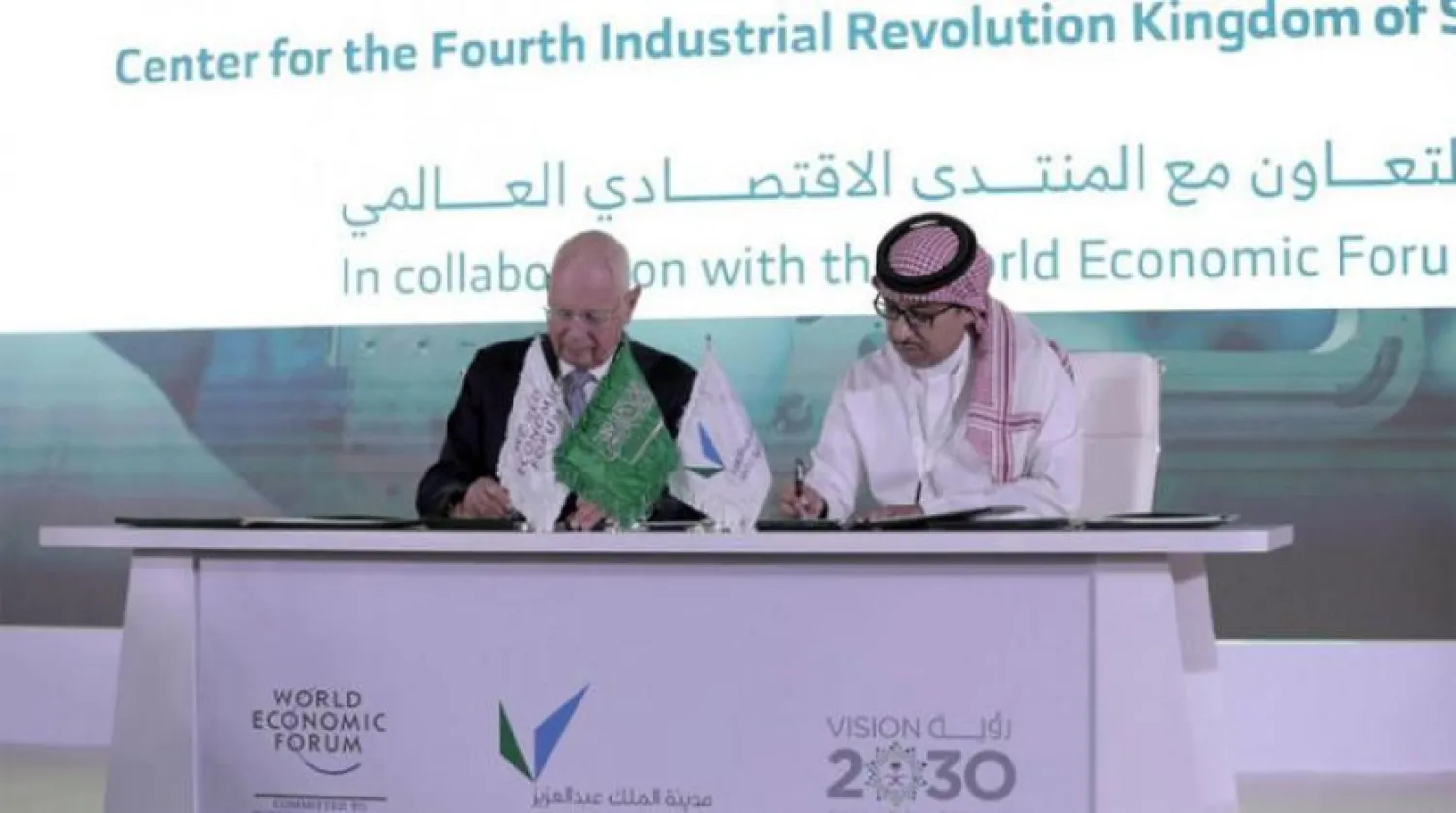Saudi Arabia inaugurated on Wednesday the 4th Industrial Revolution Center in partnership with the World Economic Forum (WEF).
Chairman of King Abdulaziz City for Science and Technology (KACST) Abdullah al-Sawahah announced the new center on the sidelines of the first Saudi Forum for the 4th Industrial Revolution.
The inaugural session was attended by WEF founder and Executive Chairman Professor Klaus Schwab, several ministers and senior officials and prominent Saudi and international speakers.
The forum is an extension of the support for development and innovation in Saudi Arabia by Custodian of the Two Holy Mosques King Salman bin Abdulaziz and Crown Prince Mohammed bin Salman, Deputy Prime Minister and Minister of Defense.
Al-Sawahah said the forum offers an opportunity to combine talent and technology to present organizations that stimulate innovation.
He highlighted the importance of meeting thinkers and actors, such as representatives of governments, non-governmental institutions, and business leaders, in supporting this initiative.
Schwab congratulated the Kingdom for inaugurating the 4th Industrial Revolution Center that aims to harness new technologies with the best principles of flexible governance, which need government, business and civil society to make technology a force for good and ensure that the society benefits from it.
KACST President Dr. Munir bin Mahmoud El-Desouki said: “Our country needs cooperation and coordination of efforts in the public, private and non-profit sectors and open channels of dialogue to raise awareness about the Fourth Industrial Revolution and identify potential risks.”
“The Kingdom has a solid economic base to build on, through recent reforms to the governance model and the creation of new entities, such as the Saudi Data and Artificial Intelligence Authority, the Cybersecurity Authority, the Digital Government Authority, and the Research, Development, and Innovation Development Authority,” he added.









